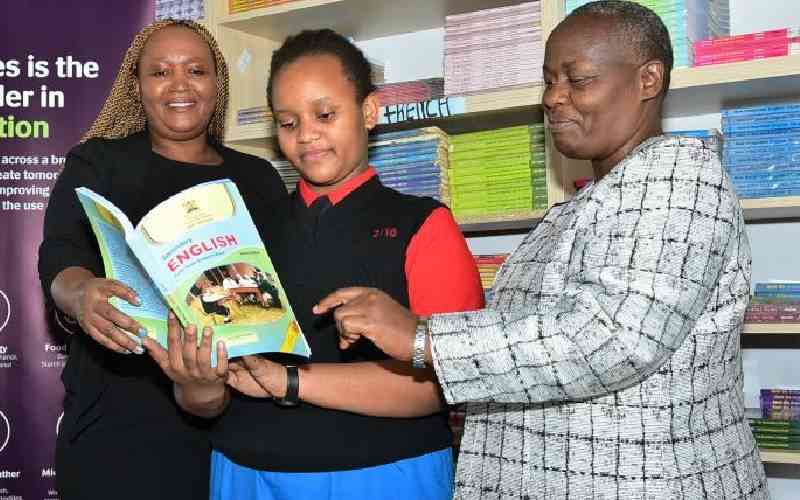Today, as the world observes International Literacy Day, we must confront an uncomfortable truth: literacy is not a luxury – it is a survival tool. Without it, individuals remain trapped in poverty; with it, they gain the power to dream, create, and transform their communities. For Kenya, and indeed the African continent, literacy remains the cornerstone upon which socio-economic transformation will either be built or stifled.
Kenya’s story offers hope. Since independence, education has been the country’s most powerful equalizer. Free primary education in 2003 and free day secondary schooling in 2008 unlocked classrooms for millions who might otherwise have been locked out of learning. Today, literacy rates stand at about 82%, and the Competency-Based Curriculum seeks to align learning with a fast-changing world. These are milestones worth celebrating.
Follow The Standard
channel
on WhatsApp
Yet challenges persist. In rural villages and informal settlements, too many children leave school without mastering the basics. Girls often face early marriages, and learners with disabilities remain excluded. For them, literacy is still a distant promise.
The African picture is even more urgent. UNESCO estimates that Sub-Saharan Africa accounts for a third of the world’s 773 million illiterate adults. Millions of children are still out of school, while overcrowded classrooms and underfunded systems fail to equip many of those enrolled with real skills. The result is a generational crisis where illiteracy perpetuates cycles of poverty, unemployment, poor health, and limited civic participation.
Literacy is not just about textbooks and classrooms. It is about equipping people with the capacity to navigate life. For instance, understanding medical prescriptions, accessing digital platforms, scrutinizing government budgets, and participating meaningfully in democratic processes.
In the African context, where a youthful population stands poised to define the continent’s destiny, literacy is the ultimate enabler. Without it, Africa risks squandering its demographic dividend; with it, the continent could power an unprecedented renaissance.
Literacy must therefore be seen not as a sectoral issue but as a national emergency and a continental priority. It is the foundation of democracy, the passport to jobs, and the engine of innovation. In the digital age, where opportunities flow through smartphones and online platforms, illiteracy is the most dangerous form of exclusion.
Kenya must now move from access to excellence. We need teachers who are motivated and well-trained, digital tools that reach every corner of the country, and robust adult education programs. We must reimagine adult literacy programs. Education cannot end at school gates. Literacy must be lifelong, preparing citizens to adapt to shifting economies and technologies.
International Literacy Day is both a celebration and a call to action. A celebration of classrooms built, books distributed, and lives transformed. It must be a clarion call to recommit and mobilize political will – to ensure every Kenyan child, every African youth, every adult yearning to learn, is not left behind. A literate child builds a stronger family; a literate society builds a free continent.
A literate Kenya will be a stronger Kenya. A literate Africa will be a freer, more prosperous Africa. On this day, let us commit not just to teaching our people how to read and write, but to empower them to live, thrive, and transform the continent. The choice before us is clear: invest in literacy, or risk locking the continent’s future in chains of ignorance.
Follow The Standard
channel
on WhatsApp
By Patrick Amimo


